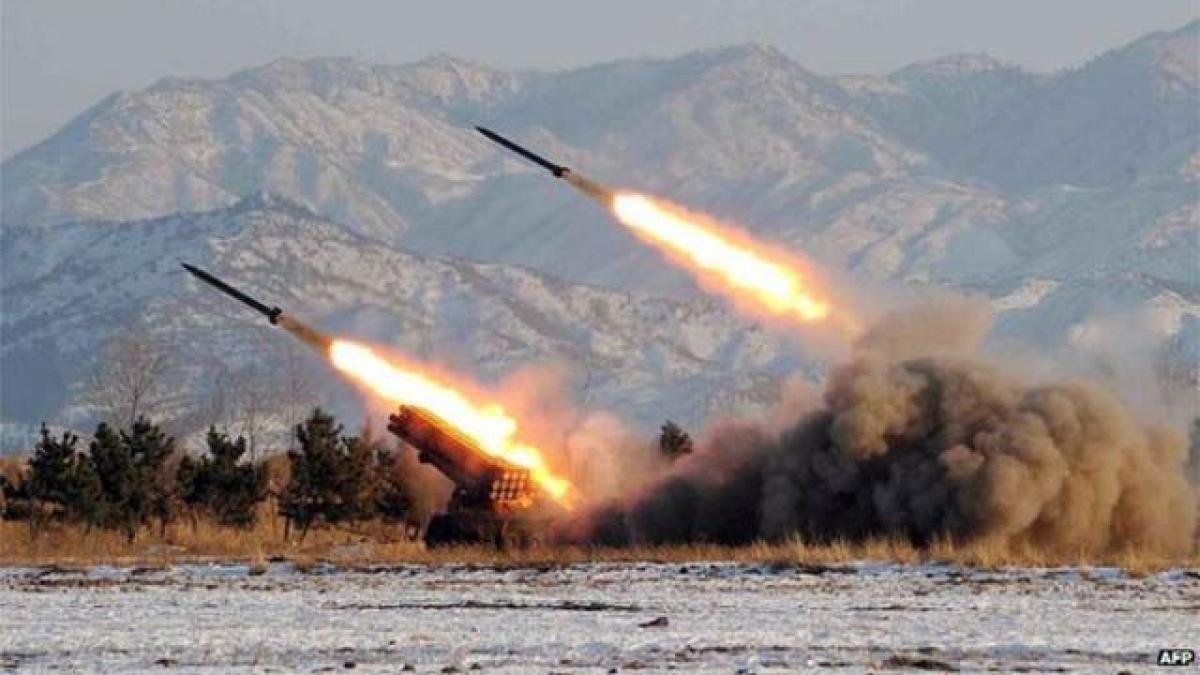Live
- UpStudy: The Smart Solution for Homework Hassles
- Actress Rithika and models inaugurate Sutraa Lifestyle Exhibition
- Loud campaign
- Faculty students celebrated english literature day in Government Degree College
- Huge fire accident.. Shops of street vendors burnt in the fire
- Pawan Kalyan promises to protect the coastal area from sea erosion
- EC Transfers Two Senior IPS Officers in AP ahead of Elections
- DMK analysis predicts victory for INDIA bloc in TN but concedes gains for BJP and NDA too
- India showcasing innovative technologies at World Energy Congress
- IPL 2024: Mitchell comes in for Ravindra as Lucknow opt to bowl first against Chennai
Just In

China and Russia urged the United States on Friday not to install a new anti-missile system in South Korea, after Washington said it was in talks with Seoul in the wake of nuclear arms and missile tests by North Korea.
Beijing : China and Russia urged the United States on Friday not to install a new anti-missile system in South Korea, after Washington said it was in talks with Seoul in the wake of nuclear arms and missile tests by North Korea. The United States and South Korea have begun talks on possible deployment of the Terminal High Altitude Area Defense (THAAD) system after North Korea tested its fourth nuclear bomb on January 6 and conducted missile tests.
The nuclear test and missile launches are in violation of UN resolutions against North Korea backed by Russia and China. US and South Korean officials have expressed concern that the North could attempt a fifth nuclear test in a show of strength ahead of its Workers' Party congress, which begins on May 6. North Korea test-fired what appeared to be two intermediate range ballistic missiles on Thursday, but both failed, the US military said.
Speaking at joint press briefing with Russian Foreign Minister Sergei Lavrov, Chinese Foreign Minister Wang Yi said the United States should respect "legitimate concerns" of China and Russia over the missile system. "This move goes beyond the defensive needs of the relevant countries. If it is deployed it will directly impact China's and Russia's respective strategic security," Wang said.
"Not only does it threaten the resolution of the peninsula nuclear issue, it quite possibly could pour oil on the fire of an already tense situation, and even destroy strategic equilibrium on the peninsula." North Korea's actions should not be used as an excuse to make moves that would escalate tensions, especially the US deployment of an anti-missile system, Lavrov said, according to an interpretation in Chinese.
North Korea's drive to develop a nuclear weapons capability has angered China, Pyongyang's sole major diplomatic and economic supporter. But Beijing fears THAAD and its radar have a range that would extend far beyond the Korean peninsula and into China. Chinese President Xi Jinping said on Thursday that Beijing would not allow war and chaos to break out on the Korean peninsula.
North and South Korea remain technically at war after their 1950-53 conflict ended in a truce, rather than a treaty. The North routinely threatens to destroy South Korea and its major ally, the United States. The United Nations Security Council is working on a response to North Korea's latest missile tests, while UN Secretary-General Ban Ki-moon urged Pyongyang to cease "further provocative actions."
The tests are the latest in a string of demonstrations of military might that began in January with North Korea's fourth nuclear test and included the launch of a long-range rocket in February. The tests have increased tension on the Korean peninsula and angered North Korea's ally China. In March, the Security Council imposed harsh new sanctions on North Korea to starve it of money for its nuclear weapons programme.
China is North Korea's sole major ally but it disapproves of its development of nuclear weapons and backed harsh new UN sanctions imposed against North Korea last month. China has long called for the Korean peninsula to be free of nuclear weapons. Nearly 30,000 US troops are based in South Korea and the two Koreas are still technically at war after the 1950-53 conflict ended in an armistice, not a treaty.

© 2024 Hyderabad Media House Limited/The Hans India. All rights reserved. Powered by hocalwire.com







